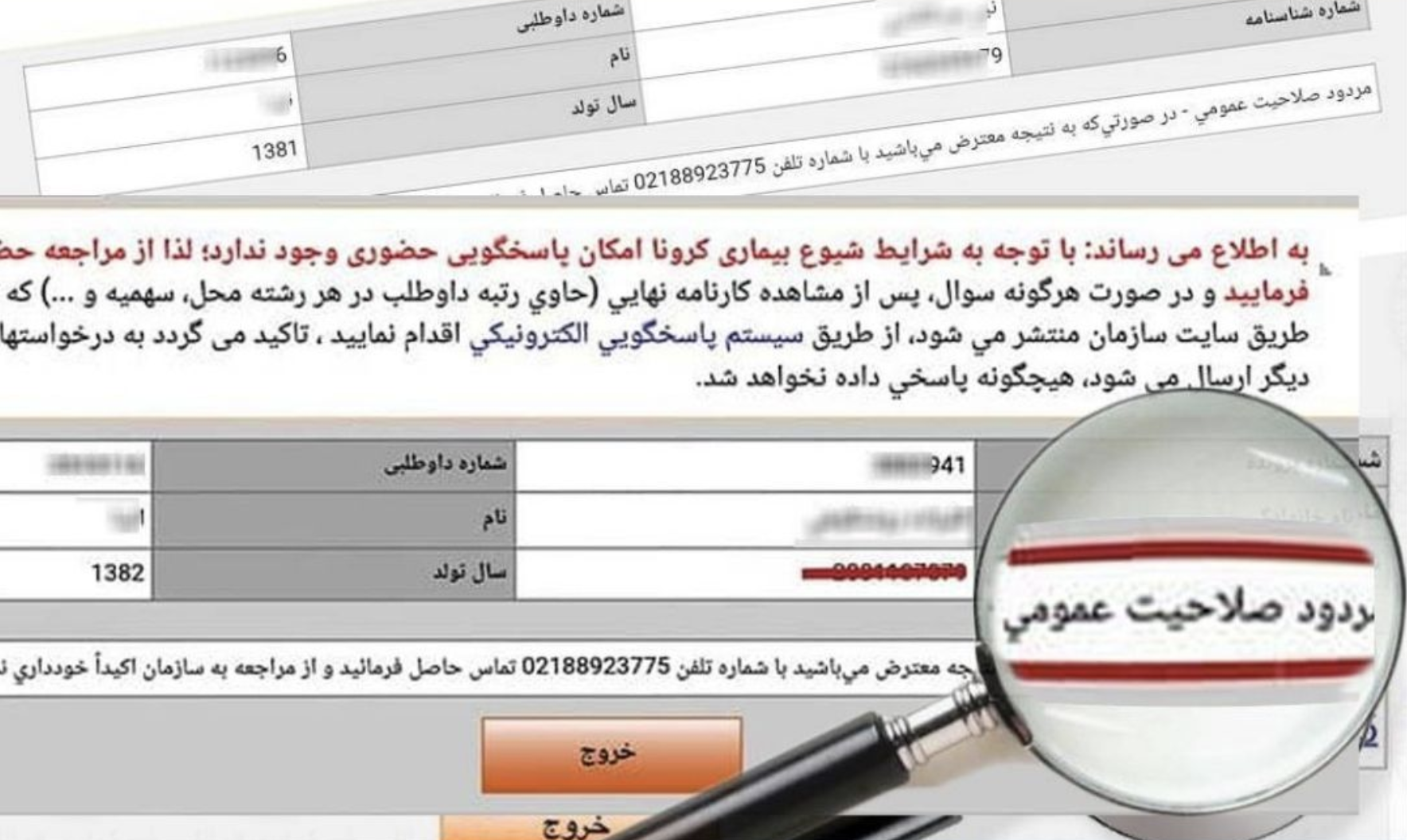Seven citizens who attended this year’s national university entrance exam were barred from access to education because they were Baha’is.
According to HRANA, the news agency of Human Rights Activists, the citizens have been identified as Nasim Shahriari Zavareh, Mahsa Forouhari, Elena Gholizadeh Roshankoohi, Nora Nabipour Klankari, Parsa Charkhand, Mesbah Misaghi, and Forouzan Nikukar.
Every year, numerous reports indicate that Baha’is are being barred from continuing their studies at Iranian universities. Students are even sometimes dismissed from universities while on the verge of graduation if administration learns that the student is a Baha’i.
According to an informed source, when Ms. Shahriari contacted to follow up on this issue, she was told that the Ministry of Intelligence had given them her record.
She was also asked questions about her religious beliefs, and was told, “If you insist that you are a Baha’i, your problem will probably not be solved at all.”
Despite the explicit wording in the constitution in which the right to education is a fundamental right, according to a resolution of the Supreme Council of the Cultural Revolution of Iran, Baha’is are barred from university education, besides being barred from holding public office.
According to unofficial sources, it is estimated that more than 300,000 Baha’is live in Iran, but the Iranian constitution recognizes only Islam, Christianity, Judaism, and Zoroastrianism. Because their faith is not considered legitimate by authorities, the rights of Baha’is in Iran have been systematically violated for years.
This deprivation of the freedom to practice their religion is a breach of Article 18 of the Universal Declaration of Human Rights, and Article 18 of the International Covenant on Civil and Political Rights. The United Nations covenant holds that every person has the right to freedom of religion, freedom of converting religion, as well as freedom of expression, individually or collectively; openly or secretly.



